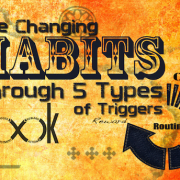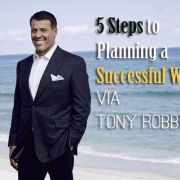How to Deal with Self-Doubt In Your Career
Just recently listened to the following podcast via the Fizzle crew,
… and it really got me thinking about how people go through episodes of self doubt. Self doubt is, by no means, limited to those of us who are interested in becoming full time entrepreneurs. It happens to all of us.
When we get new jobs or think about major life changes (having kids, buying a new house, or losing a parent) we think about how that will effect us as a person. For me, I was always worrying about if I could ever find the right career to suit who I was as a person. Today, I struggle with wondering if and when New Inception’s audience is ever going to grow enough so that we can make an impact in a million lives. Who are the people I need to meet and connect with the most?
Another thing I think about from time to time is future kids cramping Maria’s and my future career and life… or adding fuel for me to get stuff done. Brian would be the first one to say that kids are awesome. I’ve heard many people say that the reason they work so hard is because of their kids. They’ve made their kids their reason, not their excuse. However, I’ve seen time and time again where kids have made their parents a shell of a person that they once were. Here I am, at the ripe age of 34, and I still think that the phrase “my kids” is just as alien as saying “my mansion”. Is it something I’d like someday? Yeah, sure. Just after I get my Ferrari.
Feeling like I know myself too well, sometimes I feel that my visions and goals are just out of my reach. Like a better version of me could obtain them. But this version? Yeah right.
However, for us to get anywhere in life, I think we have to develop a little bit of, what Corbett called it, delusional thinking. That we can do anything we want to do. Furthermore, I think we can also attack self doubt with a little framework that I heard about a few years ago. It’s called the Question Your Worrying Model.
Getting Past Self-Doubt in Your Career
The following particulars ways of dealing with Self-Doubt are from when I was studying for a final back at Purdue one time. I had several successful years under my belt already, so I knew I could pass classes. It was just that this particular class had already really stretched me. So as a way to distract myself, I started thinking about ways that I had been able to do well on past finals. This is what I came up with:
Recognize that you’re probably not the first one. When it comes to finals, I wasn’t the first one that ever freaked out about them. Today, I usually can talk myself out of much of my self-doubt because I’m pretty sure there have been others before me that have probably had this same concern.
Question Your Doubt. This is another great reason to keep a journal. If you ever have a self-doubt that keeps coming up, perhaps it would help if you keep track of past times when you’ve had self-doubts. Ask yourself, is this the same one as before? Is it realistic? What do you think is causing it? Once you go through this deep thought once, in the future, it’ll be that much easier to deal with it.
Celebrate Your Successes. The truth is that you’ve probably have had plenty of success in your life to draw from support. If you’ve done your homework and have celebrated them as you’ve had them, recounting them should be easy. Thinking about them will bring back positive emotional support. That said, even if you can’t think of anything off the top of your head, realize that it’s almost statistically impossible that you even exist in the first place.  (Check the accompanying info-graphic for proof.)
(Check the accompanying info-graphic for proof.)
Seek out mentors, teachers, and other support. I’m not sure about you, but I occasionally get paranoid about my interpersonal skills. I think that maybe I’m coming off differently than I hope people see me. I guess that’s just the introvert in me double thinking every word. Totally task oriented at times.
When I feel that I might be doing this, I seek others to see if I was too “focused”. I can tell you, even on my weekly first of the week talk with Brian and Jon today, I was definitely more focused on what had to get done this week other than the things that they were having to go through this week and next.
More on that point, when I feel that I I’m seriously struggling with a perspective on something, I’ll generally have a discussion with Frank (who’d I consider a mentor of mine) for verification or clarification.
Relax and focus on something else. Sometimes breaks are needed. You’d be surprised how many times you can just walk away from whatever has you worrying for 5 or 10 minutes (or an evening) and come back to it refreshed. You might even wonder why it had you down in the first place. Truly, sometimes you really need to sleep on it.
Face your fears. We always dread about the worst that can happen in certain instances that cause self-doubt. However, the catch is that the worst thing will probably not happen. Instead of running from your fears, get mad (or at least frustrated) and ask yourself how long is this fear of what probably won’t happen going to keep me from achieving what I want to do? You’d be surprised in how many times I’ve surprised myself with how well something went when all I did was just try it.
Talk yourself into it! In my last post, I shared a story of Brendon Burchard’s about how he had a student in a speech class one time and she eventually was able to go from being a super quiet girl to getting in front of her peers and giving a speech. Part of that journey was giving herself a pep talk as others were comforting her.
Even though the others were there, she was listening to herself. This is what I mean by coaching yourself. Telling yourself “You got this.” does wonders. Give yourself an idea of what success looks like. Is it yourself in a new job? Is it you giving a presentation and everyone is smiling? Just Do It!
Set some goals. I mean, I feel that we might have covered this one several times too many in the podcast recently, but hey, you might be new here and I want to make sure you get it. When it comes to goals, you can make goals for what you envision OR just an obstacle itself. However, I feel that this part is huge in actually getting things done.
Homework:
So as you can see, self-doubt happens all the time. Be it in school, at the job, or if you’re starting a business (hell, even if you have already). The key is to learn how to manage those negative emotions. We’d love to hear from you in regards to this. If you have any further tactics in dealing with self-doubt, let me know! You can do so below OR… let us know in the New Inceptions Masterminder Facebook Group.








